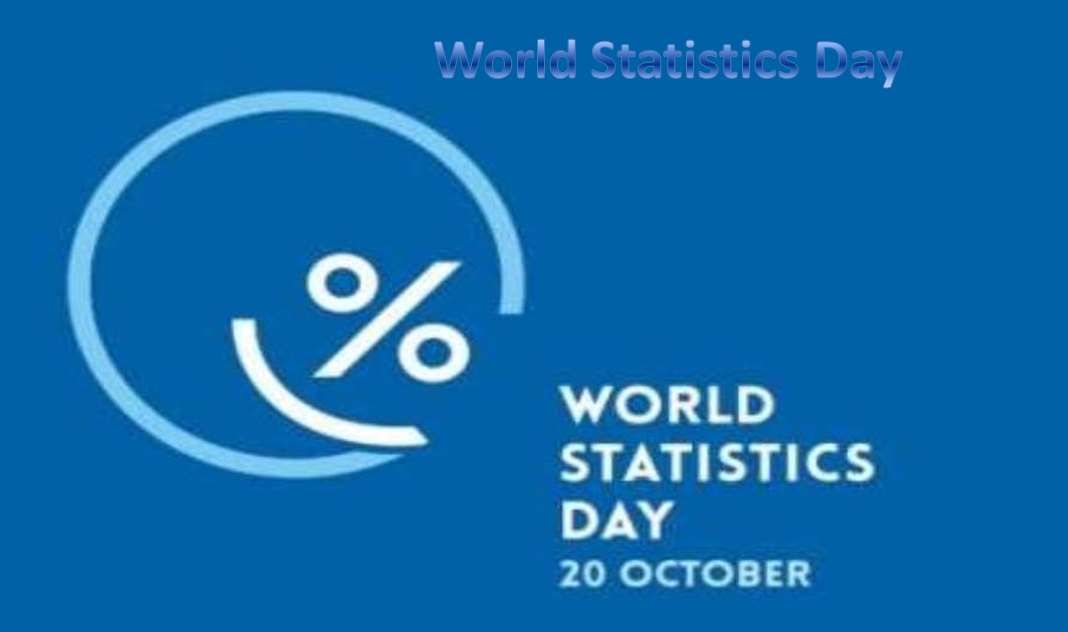
World statistics day is celebrated every 5 years around the world to commemorate achievements in statistics. World Statistics Day was first celebrated by the United Nations in 2010. Since 2010, it has become a joint venture with the participation of 103 countries. Of these, 51 African countries jointly celebrate African Statistics Day on November 18 each year. India celebrates Statistics Day on June 29, National Statistics Day, to mark the birthday of statistician Prashant Chandra Mahalanobis.
Statistics is the science concerned with developing and studying methods for collecting, analyzing, organizing, interpreting and presenting empirical data. It can be applied in scientific, industrial and social problems. Statistics is a very intermediate field; Research in statistics is applicable in almost all fields of science and research questions in various fields of science promote the development of new statistical methods and theory.
Uncertainity and Variabilty are the two fundamental ideas of Statistics field. Probability is a mathematical language used to discuss uncertain events and plays an important role in statistics.
Two main statistical methods are used in data analysis: descriptive statistics, which summarize data from a model using symbols such as mean or constant deviation, and inferred statistics, which draw conclusions from data subject to random variance (e.g., observation errors, sample variance). The statistics of the interpretation are often related to two set properties of the distribution (set or population): the central trend (or location) seeks to classify the central or general value of the distribution, while the scatter (or variation) classifies the extent to which the distribution departs from its center and to each other. Assumptions about mathematical statistics are made under the framework of probability theory, which deals with the analysis of random events.
Descriptive statistics
A descriptive statistic (in the noun sense) is a summary or summary of the features of a set of information, through which the descriptive statistics in the mass noun sense are analyzed. Descriptive figures differ from hypothetical statistics (or induction statistics).
Hypothetical figures
Statistical inference is the process of reducing the properties of the basic probability distribution using data analysis. Hypothesis statistical analysis promotes the characteristics of a population, for example by testing hypotheses and obtaining estimates. The observed data set is considered to have been taken from a large population. Hypothetical figures can be distinguished with statistics to illustrate. Descriptive statistics relate only to the properties of the observed data, and do not depend on the assumption that the data comes from a large population.
Every industry and company in the world benefits from statistical data and research. Individuals can rely on it for business and business intelligence. Large corporate campaigns and strategies are planned based on statistical data and information that require accurate research. In addition, statistical data add perspectives to information and help to demonstrate facts that lead to important conclusions. In today’s world, large functions and decisions are taken from large data, and large data sets are analytically analyzed and are related to patterns, trends, and associations, especially human behavior and relationships.
Note Drops
Third World Statistics Day will be celebrated around the world on 20 October 2020 with the theme "Connecting the World with the Data We Can Trust". This theme reflects the importance of public interest in trust, official data, innovation and national statistical systems.
World Statistics Day 2020 is a global joint venture organized under the auspices of the United Nations Statistics Office.
The Statistics Division of the United Nations Department of Economic Affairs is the global coordinator of the campaign, defining key global news and providing extensive resources to countries and other stakeholders through this website.
The National Statistics Offices act as national coordinators, translating advertising materials into national languages and organizing events and initiatives at the national and sub-national levels.
Author
S. Muthu @ Ramkumar (CSE)
2021-10-18